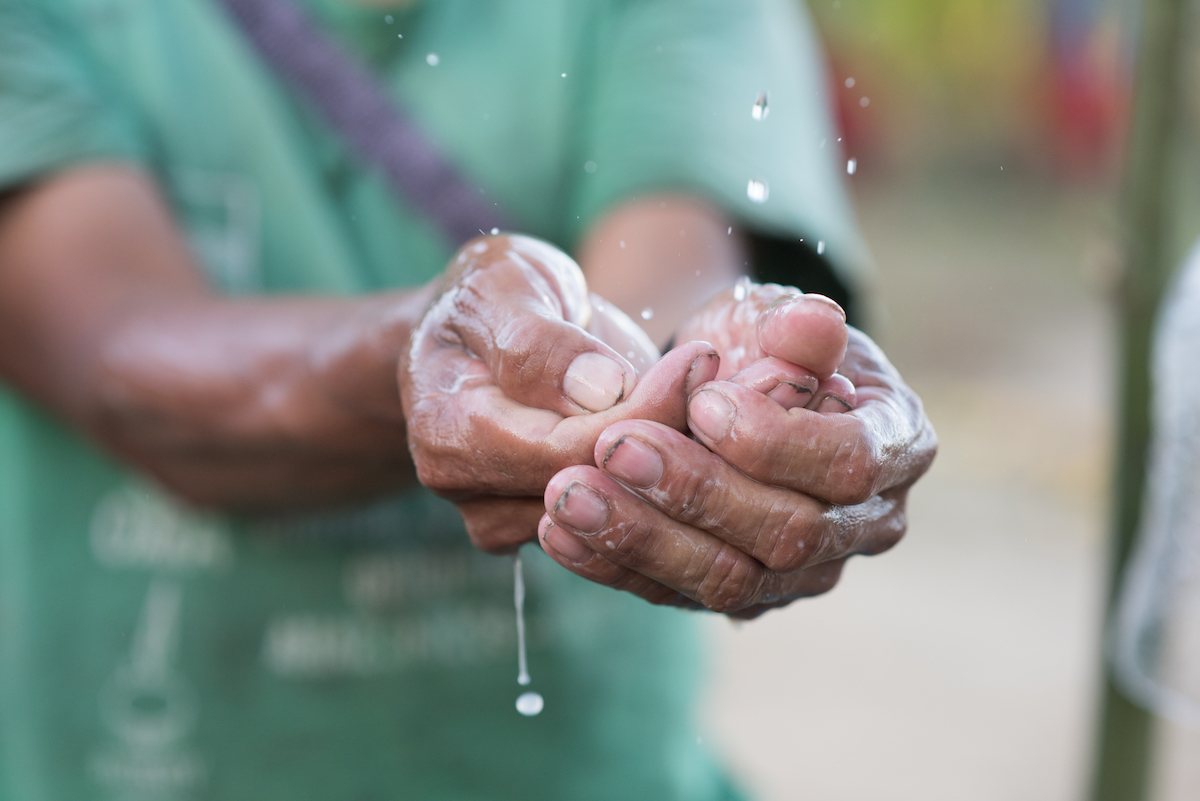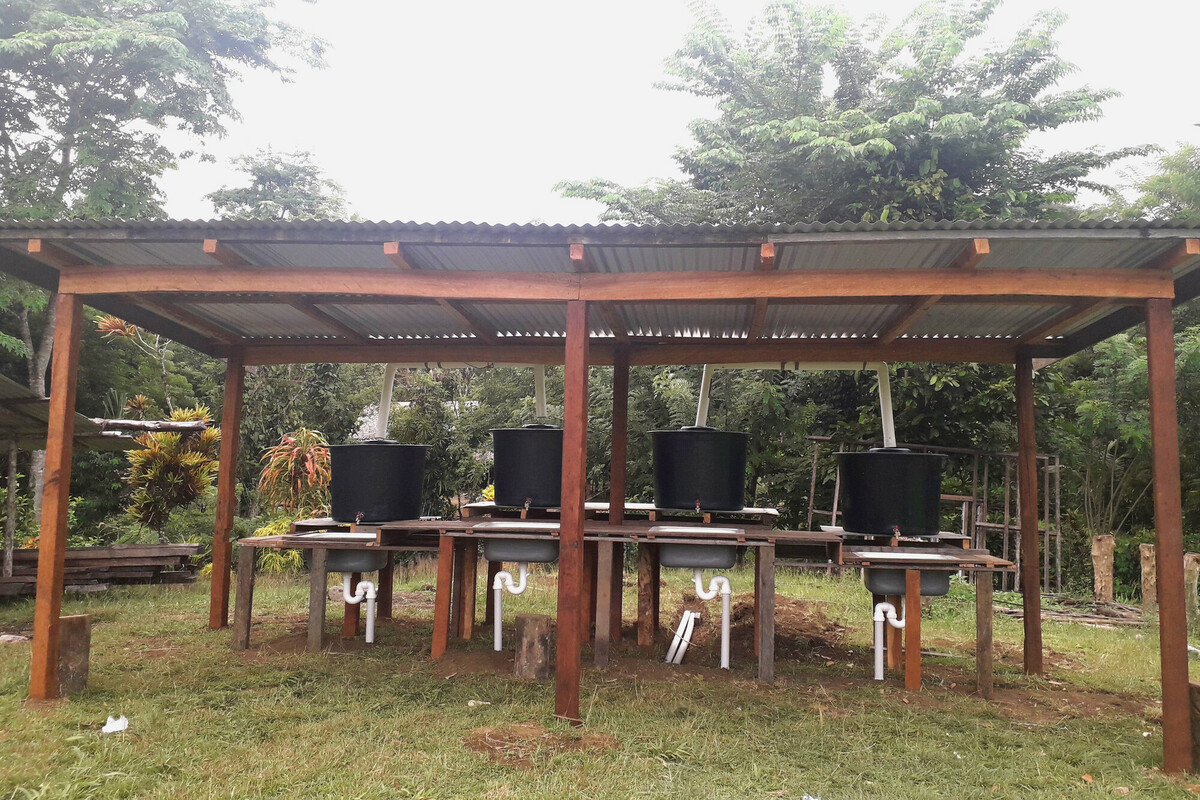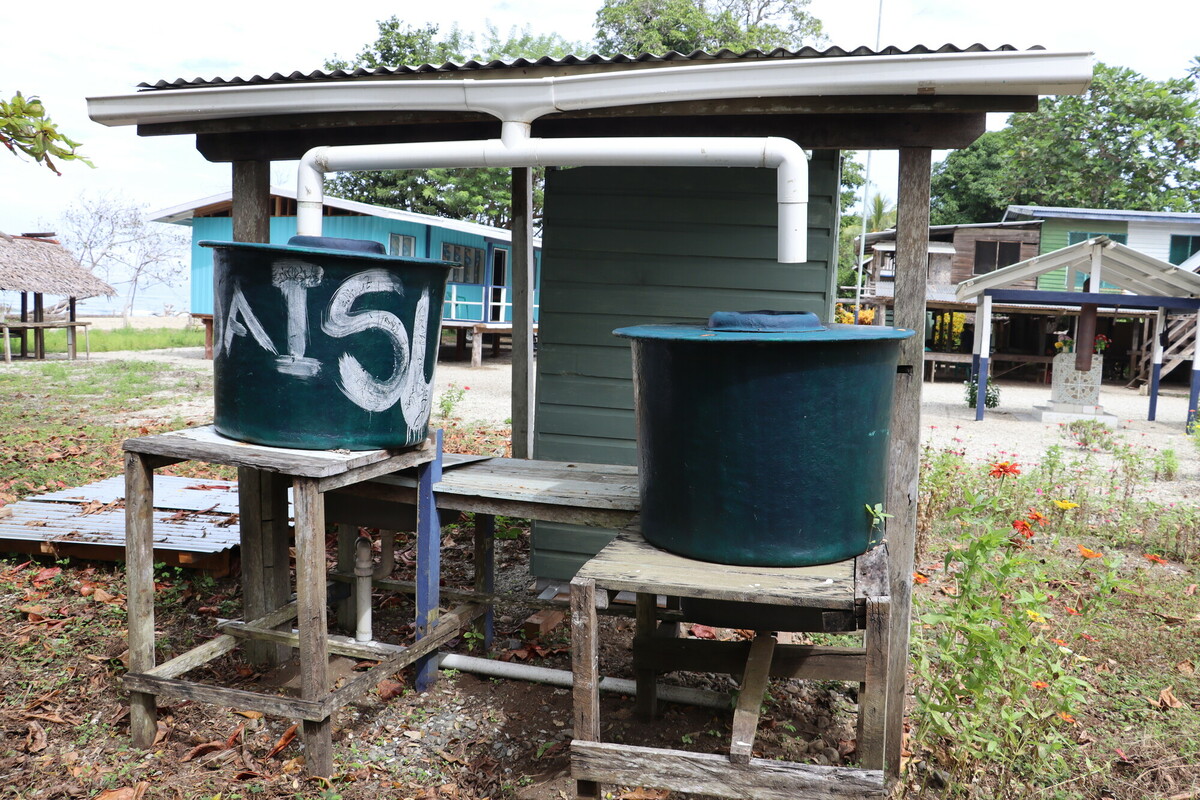
Health centre visits down in Papua New Guinea rainforest communities
Visits to a rainforest health centre in the Milne Bay province of Papua New Guinea (PNG) have decreased, thanks to the work from Cool Earth and the local Rural Water Supply and Sanitation Project (RWSSP).
But how?
This fantastic outcome has been credited to the success of our Water, Sanitation, and Hygiene (WaSH) project, which has brought clean water and sanitation facilities to remote rainforest villages in PNG. For some villages, this has been the first time they have had direct access to a clean water supply.
Waterborne illnesses were a leading cause of health problems in this rainforest region. Residents, particularly children, suffered from diarrhoea, dehydration, and respiratory diseases. The lack of proper sanitation would make the spread of illnesses worse, creating a vicious cycle of sickness in the rainforest villages.
Our WaSH project was created to address these challenges head-on.


A hand washing station in a Papua New Guinea rainforest community.
Back in July 2022, we partnered with local PNG organisations and communities to install water tanks and toilets. We also spent time educating residents on best hygiene practices.
This holistic approach not only provided clean water and sanitation, but empowered the rainforest communities to take charge of their health.
“The impact of the WaSH project so far is remarkable,” said Regina, our Papua New Guinea Country manager. “Just two years into the programme, early trends are already showing a decrease in health centre visits in the regions where our work is being carried out, compared to regions that we do not yet work in. This is a testament to the project, but also the power of collaboration and community-driven solutions.”
The results are in from the rainforest:
And, early indicators from the local health centre data show 👇
A reduced healthcare burden: Downward trend in admissions due to waterborne diseases, pneumonia and other respiratory diseases in the local health centre.
Improved health outcomes: Decrease in preventable diseases, which has lead to healthier communities.
Increased empowerment: Communities taking ownership of their health and wellbeing.


Wash tanks in a Papua New Guinea rainforest community.
Healthy communities = healthy rainforest
Living in the rainforest comes with unique challenges. Indigenous communities can lack basic necessities such as safe drinking water, reliable infrastructure, healthcare facilities, and stable sources of income.
By providing clean water, sanitation, and hygiene education, we’re not only improving public health but also helping to protect the rainforests.
Regina adds, “If the communities that live alongside the rainforest go, the rainforest will too. This is because industries such as illegal loggers will move into their territories. Because of this, the health of all rainforest communities is directly linked with the health of the rainforest.”
If you would like to support our sanitation project, please consider donating so that we can reach even more communities in Papua New Guinea.
